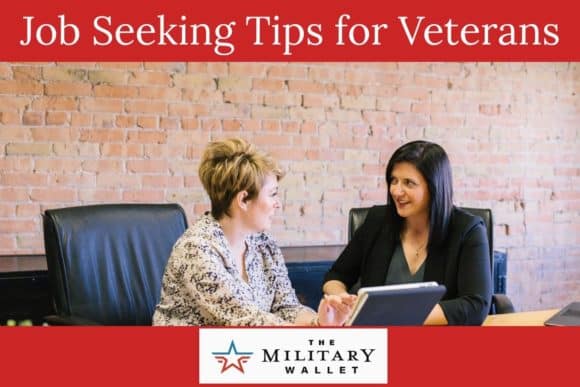The job market is tough for just about everyone, but veterans seem to struggle more with transitioning into a civilian career. This struggle isn’t because employers aren’t interested in hiring them. In fact, veterans have many qualities employers deeply desire in their employees, including problem-solving, self-motivation, team player, being goal-oriented, and the ability to work under pressure.
One of the biggest reasons why veterans struggle to find work after their time of service is that they aren’t quite sure how to translate their experience into civilian jargon.

Working with fairly foreign technology or managing a team under immense pressure are both impressive skills. But if you can’t describe those skills and achievements in terms an employer can understand, they won’t see you for your worth.
To better your chances of obtaining employment after service, consider the following to boost appeal:
Create an Elevator Pitch, or Personal Statement
One of the best things you can do when on the job hunt is to have a personal statement, or elevator pitch, ready. You can put a personal statement on your resume, but you should also be prepared with a brief introduction that you can use when someone asks you to tell them about yourself. In a job interview or at a networking event, you need to be prepared with a brief yet useful statement of who you are and what you offer. Remember that you only have about 30 to 60 seconds to create interest. After that time limit, many people stop listening.
How to Create an Elevator Pitch
Take the time to consider the most important aspects of yourself. If your personal statement is going on a resume, you should try to tweak your personal statement to reflect that you have the skills and attributes the employer is looking for. Before you go into a job interview, you can consider the information you want to include if the interviewer should ask you for more information about who you are. Also, give your personal statement some thought when you apply so that you re ready in the event of a surprise phone interview.
There are three main parts to a personal statement:
- Career objective: Briefly state your career objective and the position you want.
- Accomplishments: Mention three accomplishments that demonstrate your fitness for the position or illustrate your proficiency in the field.
- Skills: Include special skills you have for the job, or explain how your skills can be adapted to benefit your new position.
Once you know which items you want to highlight, you need to begin crafting your personal statement. For a resume, you can do this in two or three brief sentences. If you are going to be using your personal statement for networking or at a job interview, you will need to practice being succinct, and practice your delivery so that it flows well (but doesn’t come out sounding rote).
Other things to remember as you create a personal statement include:
- Try to avoid clichés. Telling people how hardworking, loyal and trustworthy you are doesn’t set you apart. Most job seekers use those descriptions. Your personal statement should strive to convey those values by using examples, without you needing to list them right out.
- Speak in the present tense: You want to convey that you are viable now and can make a contribution today.
- Remember your audience: When networking, you should limit jargon — especially if you are speaking with someone who isn’t directly in your field or someone who doesn’t have your expertise.
- Change things up: If you will be going in for an interview, make sure that you tweak your personal statement so that you aren’t saying the same thing that the employer is already reading at the top of your resume.
- Consider personal information: If you are asked specifically about what you like to do in your free time, or to come up with something interesting or unexpected about yourself, you may need that information. Think about it ahead of time, so that you are ready with a response.
Crafting a personal statement, or elevator pitch, can be a big help to you as you search for a job. It lets employers and others know about you quickly and can convey your competence and qualifications rapidly. Take the time to refine and practice your personal statement so that it looks good on paper and that you can deliver it naturally in an interview.
Attend a Resume Workshop
Finding the words to best translate your military experience isn’t always easy. Don’t be afraid to obtain help creating the best resume possible by attending a resume workshop. Many area community colleges, community centers, and continuing education centers will offer these workshops for free or at a nominal fee, and they will not only show you how to word your resume but also how to adequately format it to impress employers.
Before being discharged, the military should also provide you with an opportunity to attend a resume-building workshop as part of your transition. If so, definitely take the opportunity to attend.
Practice Interviews
Getting your work experience and skills to look appealing on paper is half the battle when it comes to securing employment. In order to impress employers, you need to be able to speak clearly about your skills and experience while also maintaining a professional demeanor.
Although most military members are used to being respectful to superiors, using “yes, sirs” or “no, ma’ams” during an interview can be off-putting. Civilian employers aren’t used to such titles, have very little room in the business world, and only add to military stereotypes.
To practice fully explaining your skills and experience without the use of military jargon, attend practice interviews offered by local career centers and community colleges. If you are struggling with finding a place for practice interviews, at the very least, have a civilian friend or family member formally interview you. If nothing else, looking at a few helpful job sites offering interview tips is a great place to start. The practice, in any way you can get it, will help you speak more naturally and in a clear and concise fashion that will be more likely to impress employers.
Use Available Resources
Trying to weed through the dozens of career sites can be overwhelming and can quickly deter any job-seeker, spouses included. To make finding the right career easier for you, look at the available job resources for military personnel exclusively. Seeking a Veterans Employment Representative at the American Job Center and visiting the employment resources of the National Service Directory are great places to start. There are also job search sites exclusive to veterans and the employers that wish to employ them.
Before you begin your job search, also be sure to consider your short- and long-term career goals deeply. While everyone has to take a job simply for a paycheck on occasion, you don’t want to find yourself straying so far from your career goals that getting back on track seems impossible. If you find that your career goals will require additional knowledge, seek additional education or training which can often be provided by Veterans Affairs.
Your time of service doesn’t have to be limiting when it comes to finding gainful civilian employment. In fact, it should be empowering. Service members have excellent qualities that employers desire in their employees; veterans simply need to learn how to demonstrate those qualities in civilian terms. Take the time to learn the ins and outs of resume building and the art of the interview. You will have a better chance of success at securing a career, which will make transitioning from military service to civilian life easier.
August Nielson is the Human Resources Manager for Veterans United Home Loans, who is responsible for hiring over 1,000 employees in the past five years for a company named the #1 job creator nationally in the financial industry by Inc. Magazine as well as making the Great Place to Work top 25. Connect with him on LinkedIn.




Comments:
About the comments on this site:
These responses are not provided or commissioned by the bank advertiser. Responses have not been reviewed, approved or otherwise endorsed by the bank advertiser. It is not the bank advertiser’s responsibility to ensure all posts and/or questions are answered.
Anton Ivanov says
When separating from the Navy, I also found the Transition Assistance Program (TAP) class to be very useful. Many sort of breeze through it, but they give you lots of free career books and worksheets. You can walk out of there with a full resume, reference list and cover letters.
Ryan Guina says
The Transition Assistance Program was helpful for me when I separated from the military, but it was more or less a crash course and only covered things at a very high level. I think most people need to spend much more time on their own learning the ins and outs of writing resumes, networking, interviewing, etc. There just isn’t enough time to learn everything in a couple days!
MrMilitaryMoney says
You could also have some of the GS or civilian contractors in the office take a look at your resume. Most people have a hard time translating military experience into something a civilian would understand.